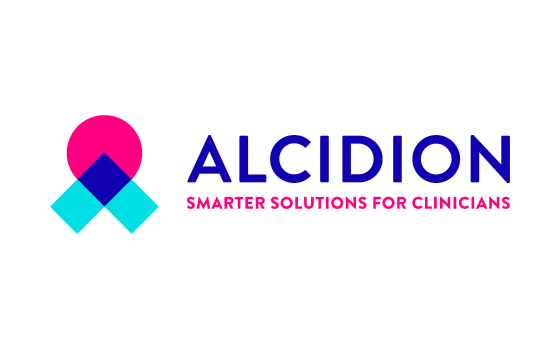 Emergency departments in three hospitals across Hampshire Hospitals NHS Foundation Trust have deployed Alcidion's Miya Emergency, digitising paper processes, saving clinical teams time, automating tasks, and providing trust-wide visibility of patient status and A&E activity.
Emergency departments in three hospitals across Hampshire Hospitals NHS Foundation Trust have deployed Alcidion's Miya Emergency, digitising paper processes, saving clinical teams time, automating tasks, and providing trust-wide visibility of patient status and A&E activity.
Clinical professionals and end users were deeply involved in this complex undertaking, from the moment a decision was made to deliver a new emergency department electronic patient record. A comprehensive team managed the procurement, core design and implementation of Miya Emergency across three emergency departments.
This approach enabled rapid and effective progress - and within 10 months of contract commencement, teams redesigned complex clinical workflows, integrated key systems, engaged a full range of stakeholders, and prepared staff in and beyond emergency departments, before a successful simultaneous go-live on a single day.
Delivered on time and within budget, the new system now supports end-to-end patient workflow. It allows teams to capture data for patients coming into the trust's emergency department, streamlining processes as they are treated, and ensuring seamless data continuity as they move forward in their care - as inpatient admissions, or during discharge back to community.
Paper processes are progressively being removed as Miya Emergency is integrated with other trust digital systems. Automation of once manually intensive tasks, such as data collection for the Emergency Care Data Set, is saving time, and efficiencies are being created as the system generates clinical assessments, forms, referrals, and task creation.
Led by a multi-disciplinary clinical and operational team representing various functions in the trust, implementation successfully took place during the summer at emergency departments in Andover War Memorial Hospital, Basingstoke and North Hampshire Hospital, and Royal Hampshire County Hospital.
Dr Tamara Everington, former chief clinical information officer for Hampshire Hospitals NHS Foundation Trust and now chief medical officer at Queen Victoria Hospital, Sussex, said: "Clinical and operational staff see enormous potential in Miya Emergency to help them work in more modern ways, in support of better outcomes and efficiency. The system works extremely well, providing cross-trust visibility of what is going on in our emergency departments.
"A broad range of people in and around emergency departments - doctors, nurses, pharmacists, operational specialists, and administrative teams, have worked hard together to ensure a successful implementation on time.
"We have had an extremely positive relationship with Alcidion - including engagement from the chief executive, and close communications at every stage with senior clinicians and technical people, allowing us to respond to challenges and design a solution collaboratively.
"This is a very important part of our organisation's paper-free journey, and work here will also inform progress towards a shared main electronic patient record for all the acute hospital Trusts within our integrated care system."
Implementation to-date has seen the deployment of a core system, which has been integrated into the trust's current electronic patient record, and which is already able to communicate important discharge information to GP practices. Additional integrations, including the ability to send patients' documents into the NHS App, will take place in the new year.
In addition to informing the future regional EPR strategy, the project is also expected to lend lessons to at least one other neighbouring trust that is expected to go-live with Miya Emergency next year.
Dr Paul Deffley, chief medical officer for Alcidion, said: "The complexity of reimagining workflow across not only three busy emergency departments – but across upstream and downstream services within and beyond hospitals walls – cannot be understated. Nevertheless, the team at Hampshire Hospitals has done this in an impressive and collaborative way. Every deployment is different, and we are pleased to have been able to be so closely involved and present onsite to understand and respond to local needs. We also look forward to sharing lessons with other emergency departments and other EPR implementations across the country, at a time when digitisation has once again been thrown into sharp focus."
Hampshire Hospitals' operations director (Medical Division) Zena Ludick, said: "Transitioning to MIYA while maintaining extremely busy emergency departments was no small challenge; this change impacted all members of our ED staff and also required departments throughout the trust to prepare and respond. As well as considerable planning ahead of the transition date, a full contingency response team met regularly throughout the switch to MIYA and this was supported by Alcidion."
About Alcidion
Alcidion Group Limited (Alcidion) has a simple purpose, that is, to transform healthcare with proactive, smart, intuitive technology solutions that improve the efficiency and quality of patient care in healthcare organisations, worldwide.Alcidion offers a complementary set of software products and technical services that create a unique offering in the global healthcare market. Based on the flagship product, Miya Precision, the solutions aggregate meaningful information to centralised dashboards, support interoperability, facilitate communication and task management in clinical and operational settings and deliver Clinical Decision Support at the point of care; all in support of Alcidion’s mission to improve patient outcomes.
Since listing on the ASX in 2011, Alcidion has acquired multiple healthcare IT companies and expanded its foothold in the UK, Australia, and New Zealand to now service over 400 hospitals and 87 healthcare organisations, with further geographical expansion planned.
With over 20 years of healthcare experience, Alcidion brings together the very best in technology and market knowledge to deliver solutions that make healthcare better for everyone.